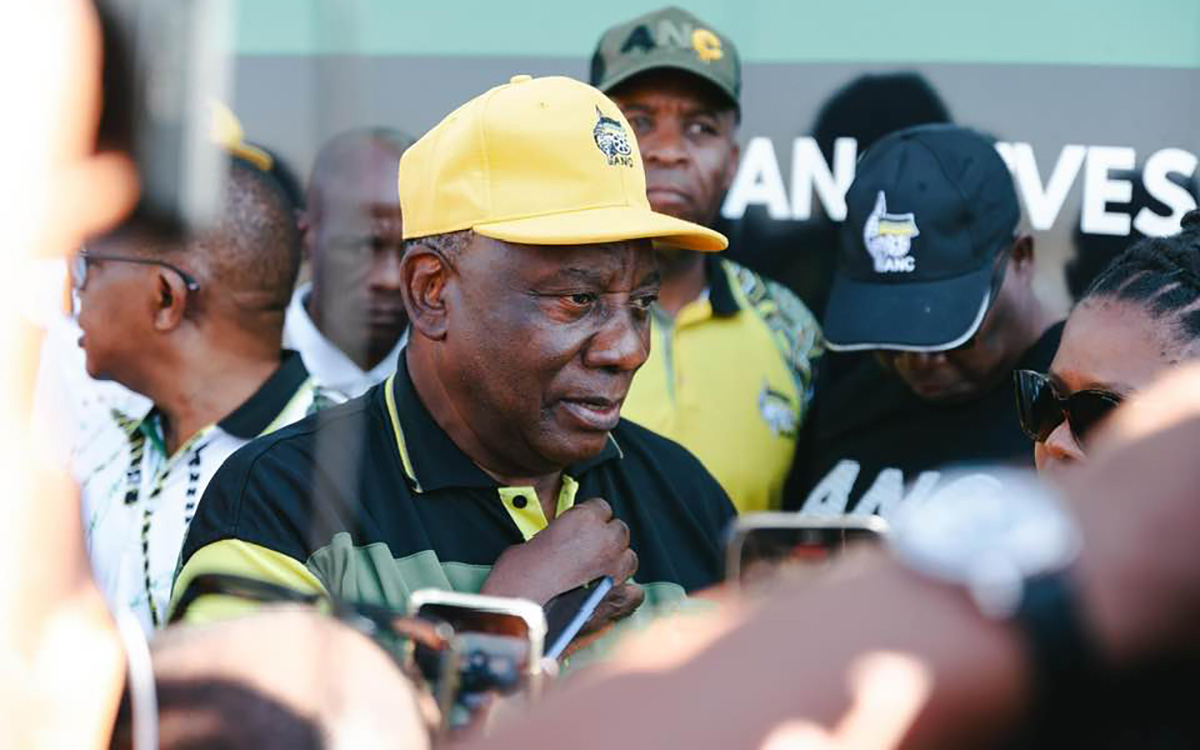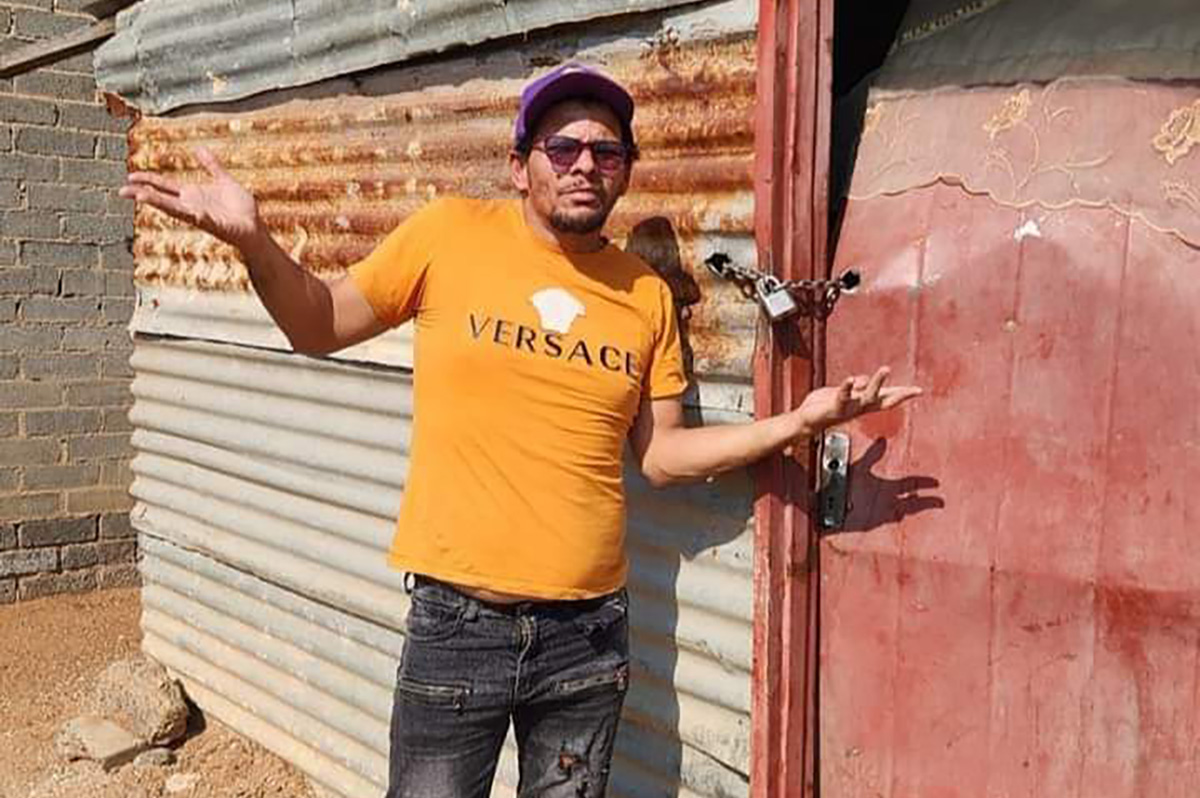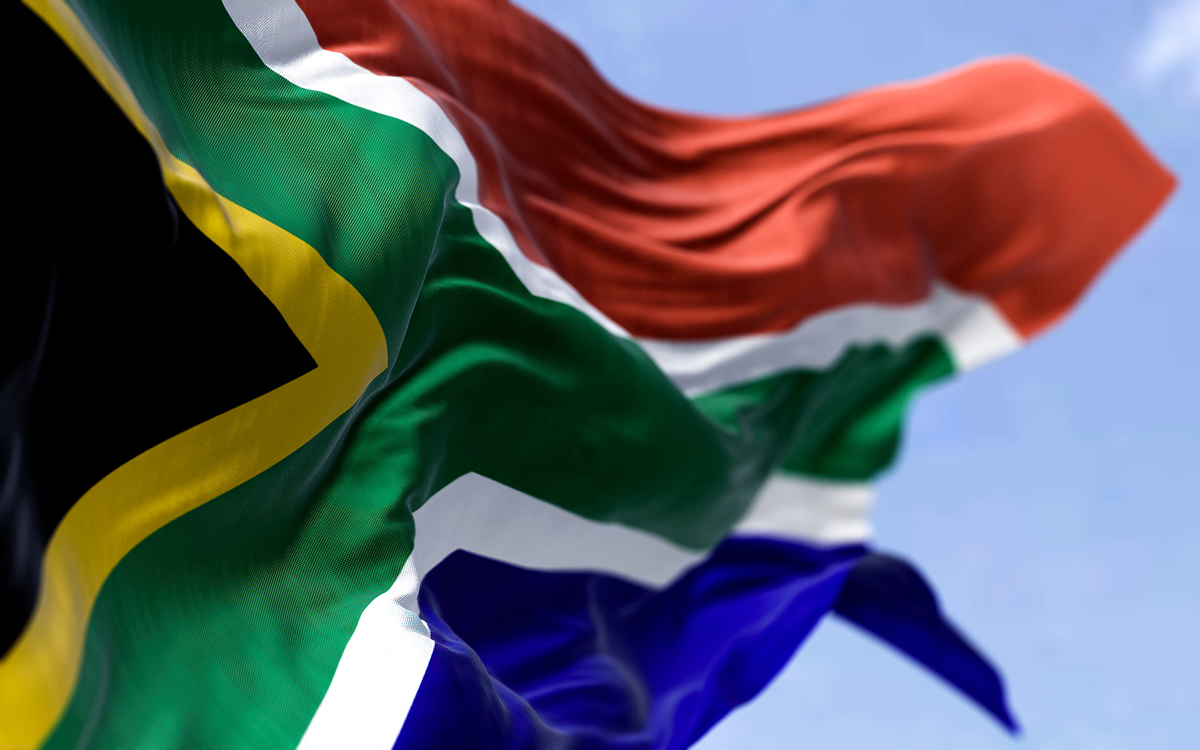WorldPride 2028 to take place in Cape Town (original) (raw)
South Africa
South Africa is first African country to host event

(Photo courtesy of Michael Gladwin)
Cape Town last month secured enough votes to host WorldPride in 2028.
The bidding process, which started in late October, took place in Medellín, Colombia, where the Guadalajara (Mexico) Pride and WorldPride Cape Town bidding teams contended for the rights to host WorldPride. InterPride, which organizes the event, on Nov. 8 officially declared Cape Town the host of WorldPride 2028.
It will be the first time WorldPride will take place in an African country.
South Africa is the only country on the continent that constitutionally recognizes LGBTQ rights. South Africa, as a result, in recent years has seen a surge in the number of LGBTQ asylum seekers from Africa and around the world.
Reacting to the historical precedence, Cape Town Pride said it was now time for Africa to shine and acknowledged the WorldPride Cape Town bidding team and the city of Cape Town for their role in the bidding process.
“This is a first for the whole continent of Africa,” said Cape Town Pride CEO Tommy Patterson. “A few weeks ago, in Medellín, Cape Town Pride, the city of Cape Town, and the bidding team presented our bid. The team did a wonderful job and we all forged great friendships and allies from Pride groups all over the globe.”
“Cape Town Pride is thrilled by the news and support shown by the global LGBTI+ family,” added Patterson.
Michael Gladwin of the WorldPride Cape Town bidding team echoed Patterson’s excitement.
“This will mark the first time WorldPride is held on the African continent, and we couldn’t be more excited to welcome the global LGBTQ+ community to our beautiful city,” said Gladwin. “A heartfelt thank you goes out to all our incredible partners who supported this journey. Together, we will showcase Cape Town as a beacon of inclusivity and diversity.”
Gladwin also congratulated Guadalajara Pride for their bid.
“Their commitment in promoting LGBTQ+ rights is inspiring, and we look forward to collaborating in the future,” said Gladwin.
Cape Town’s LGBTQ community is celebrating the successful bid, while others in the city have criticized it.
Rev. Oscar Bougardt, founder and lead pastor of the Calvary Hope Baptist Church, described WorldPride as “garbage” and “filth” that should be condemned.
“I am happy to say I am amongst the pastors in Cape Town who are in opposition and are outraged at this garbage planned for 2028,” said Bougardt. “The city of Cape Town and LGBTQ+ organizations planned this event without consulting rate payers, this bid was done in secret and taxpayers’ money will be used to fund this filth.”
“Just as the LGBTQ + organizations have the right to host WorldPride 2028, we have the right to say we don’t want it in Cape Town,” he added. “I pray more church leaders will stand up against the planned WorldPride 2028. To church leaders and parents, this is the time to unite and tell the city of Cape Town and LGBTQ+ organizations that we are disgusted at the planned event. Untied we stand and divided we will fall!”
Kaohsiung, Taiwan, in 2022 won the bid to host WorldPride 2025, but the local planning committee withdrew it amid a dispute with InterPride. WorldPride 2025 will take place in D.C. from May 17-June 8, 2025.
The 2024 ILGA World Conference took place last month in Cape Town.

South Africa
South Africa groups offer muted response to president’s pledge to protect LGBTQ rights
Cyril Ramaphosa gave State of the Nation speech on Feb. 6
Published
1 day ago
on
February 13, 2025

South African President Cyril Ramaphosa speaks with attendees at the African National Congress Party Rally on May 10, 2024 in Tshwane, South Africa (Photo courtesy of Ramaphosa's Facebook page)
Several South African advocacy groups say they are not moved by President Cyril Ramaphosa’s pledge to protect LGBTQ rights during the State of the Nation speech he delivered in Cape Town on Feb. 6.
“As South Africans, we stand for peace and justice, for equality and solidarity. We stand for non-racialism and democracy, for tolerance and compassion,” said Ramaphosa. “We stand for equal rights for women, for persons with disability and for members of the LGBTQI+ community.”
Even though the president made the proclamation, LGBTQ South Africans continue to face hate crimes that often end in the loss of life, despite laws that include the Preventing and Combating of Hate Crimes and Hate Speech and the prohibition of discrimination based on sexual orientation enshrined in the constitution.
In addition, U.S. President Donald Trump’s 90-day moratorium on nearly all American foreign aid has impacted several LGBTQ organizations in South Africa.
“The cut in funding has really made a negative impact towards the way we run the organization,” said Sibonelo Ncanana, civil society engagement officer for OUT LGBT Well-Being. “It’s more of a malfunction we are witnessing, so what the president said last Thursday has little relevance due to the ongoing predicament we are encountering.”
Bruce Walker, convenor of Pretoria Pride, said he appreciated Ramaphosa’s comments about the protection of LGBTQ rights, but added they were mere grandstanding.
“We really appreciate him saying this and it’s a good thing for an African leader to speak out about the rights of the LGBTI community. LGBTI rights are in our Bill of Rights and constitution,” said Walker. “However, the president’s utterances were just pure window dressing because the current government refuses to condemn the treatment of LGBTI communities in Africa, and are very quiet on the imprisonment and execution of LGBTI people in the world but fight and spend millions to condemn Israel.”
Iranti nevertheless said it expected the president to stay true to his word and ensure the rights of the LGBTQ community are protected as the country’s constitution outlines.
‘President Ramaphosa affirmed that he stands with members of the LGBTQIA+ community, a very important act as we witness a regression of LGBTQIA+ rights and the growth of anti-gender movements across the globe,” said Iranti. “We urge the president to follow up on this commitment, with concrete strategies and actions that will improve the lives of LGBTQIA+ people in South Africa.”
South Africa is the only African country that constitutionally recognizes LGBTQ rights. Many South Africans, however, do not recognize the LGBTQ community because of cultural and religious beliefs and the idea that homosexuality is a Western import.
The suspension of nearly all U.S. foreign aid has impacted the Uthingo Network, OUT LGBT Well-Being, Iranti, and other advocacy groups. Trump on Feb. 7 signed an executive order that limits American financial assistance to South Africa because of the Expropriation Act that Ramaphosa signed last month.
Though the Expropriation Act involves compensation, some of the land the government has deemed of public interest — for infrastructure projects, public service expansion, and environment conservation — can be expropriated without permission. Trump said the law violates South Africans’ rights.
South Africa
Another gay man murdered in South Africa
Lazarus Ikaneng Thomas’s body found in Northern Cape province on Sept. 7
Published
5 months ago
on
September 18, 2024

Lazarus Ikaneng Thomas (Photo courtesy of Empire 101's Facebook page)
Lazarus Ikaneng Thomas, a 50-year-old gay man from Galeshewe in Northern Cape province has become South Africa’s latest victim of homophobic violence.
The province’s Department of Social Development, Youth, Women, People Living with Disabilities, Sports, Arts, and Culture said authorities discovered Thomas’s decomposing body in a home on Sept. 7 after neighbors complained of a foul smell. Thomas, who was buried at Kimberly’s Phutanang Cemetery last Friday, was reportedly strangled and had acid poured on his body.
Nontobeko Vilakazi, a member of the Department of Social Development, Youth, Women, People Living with Disabilities, Sports, Arts, and Culture’s Executive Council in the Northern Cape province, said Thomas’s murder left her shaken, especially when she saw pictures of his decomposed hand lying on the ground.
“I would firstly want to offer my condolences to the bereaved family,” said Vilakazi. “This tragic incident should never have transpired. It hurts me to see our society exhibiting so much hate.”
“Why would someone murder someone because of who they are?” she asked. “The stigma and hatred for other people is of grave concern. As a community, we need to do better, we can’t continue like this. As a department we will be offering psychosocial support to the family, this tragic incident has left us utterly distraught.”
Sibonelo Ncanana, civil society engagement officer for OUT LGBT Well-being, echoed Vilakazi. The advocacy group said Thomas’s murder is a stark reminder of the ongoing hate crimes the country’s LGBTQ community are experiencing.
“Firstly, we would like to convey our condolences to the family. It’s really a painful tragedy that transpired,” said Ncanana. “However, over the past few months, we have witnessed a lot of hate crimes with most of the victims succumbing to the hate crimes.”
Ncanana said five people have been killed in suspected hate crimes in Eastern Cape over the last four weeks.
“It’s really worrisome,” said Ncanana. “We are running out of ideas on how to curb these hate crimes. It’s depressing and devastating.”
Inclusive and Affirming Ministries said the police should expedite their investigation of Thomas’s death.
“The LGBT community is united in demanding justice for Lazarus, we urge the police to take swift action in uncovering the truth and holding those responsible accountable,” said IAM.
South Africa is currently witnessing an unprecedented level of attacks on LGBTQ people, with many of them losing their lives. President Cyril Ramaphosa earlier this year signed a law that criminalizes hate crimes based on sexual orientation and gender identity, but the attacks continue.
Activists have attributed this spike in anti-LGBTQ hate crimes to the National Prosecuting Authority, the police, and other law enforcement officials who they say have not done enough to arrest and prosecute perpetrators. A small handful of people accused of carrying out homophobic attacks have been arrested and prosecuted — and some cases have dragged on for years before a verdict is reached.
Those who are convicted do not receive maximum — or lengthy — prison sentences. Activists say these punishments enable continued homophobic attacks.
So-called “right-wing socialists” continue their calls for the government to change laws that protect the rights of LGBTQ people.
South African law fully recognizes and protects LGBTQ people, but many South Africans continue to disregard their existence.
South Africa
Lesbian couple murdered in South Africa
Nombulelo Thandathina Bixa and Minenhle Ngcobo killed on Aug. 27
Published
5 months ago
on
September 10, 2024

(Photo by Rarraroro via Bigstock)
South African LGBTQ organizations have condemned the tragic murder of a lesbian couple in Dambuza near Pietermaritzburg on Aug. 27.
Reports indicate the couple — Nombulelo Thandathina Bixa, 28, and Minenhle Ngcobo, 22, — were shot dead by Ngcobo’s ex-boyfriend who was reportedly not happy with her recent relationship with Bixa.
Bixa was laid to rest on Sept. 5. Ngcobo was buried on Sunday.
ILORA, an LGBTQ rights organization, says the couple’s murder has left their families, friends, and the broader community in profound grief.
“We stand in solidarity with all those who are mourning and call for justice for our fallen siblings,” said ILORA. “Together, we must continue to fight against the violence and hatred that threaten our lives and communities.”
Uthingo Network, another LGBTQ rights organization, said the couple’s death was a horrific incident that could have been averted, noting Ngcobo’s ex-boyfriend had been harassing them and ignored a protection order.
“This brutal act highlights the deep-seated homophobia and violence that persists in South Africa, especially in rural areas where LGBTI+ individuals are often marginalized and under protected,” said the group in a statement. “The systemic lack of awareness and understanding in these communities contributes to an environment where such hate crimes can occur frequently and with little consequence.”
“The fear of further victimization often silences those who seek justice, perpetuating a dangerous cycle of violence and impunity,” added the Uthingo Network.
The Uthingo Network also said it is calling for urgent and comprehensive action at all levels — including more vigorous enforcement of hate crime laws, training for police officers on LGBTQ issues, and community-based education programs to challenge harmful prejudices.
“Uthingo Network urges the government, civil society, and individuals to stand together against all forms of hatred and violence, working towards a future where no one is targeted for who they are or who they love,” said the group.
Gay man killed outside his home on Aug. 18
Xolani Xaka, a 32-year-old gay man from Gqeberha, was murdered outside his home on Aug. 18.
A family representative said Xaka heard noises at the gate of the home he shared with his uncle. He went to investigate, and three men confronted him, repeatedly stabbing him until he was dead.
The three men fled.
“LGBTIQ+ people should not have to live in fear of discrimination and deadly violence simply because of who they love or their gender identity,” said OUT Civil Society Engagement Officer Sibonelo Ncanana. “We call on the authorities to act with urgency to arrest and prosecute the men alleged to have callously taken another queer life.”
Ncanana said no arrests have been made, even though authorities continue to investigate Xaka’s murder. A motive remains unclear.
Crimes against LGBTQ South Africans remain prevalent, even though the country is the only one in Africa that constitutionally recognizes rights based on sexual orientation and gender identity, and President Cyril Ramaphosa in May signed the Preventing and Combating of Hate Crimes and Hate Speech Act. Activists say homophobic and transphobic religious and cultural beliefs contribute to continued attacks against LGBTQ South Africans.
Steve Letsike, a lesbian who won a seat in the South African National Assembly earlier this year, on June 30 became the country’s deputy minister of women, youth and people with disabilities. Activists are hopeful she will work to raise awareness for the need to protect LGBTQ South Africans.